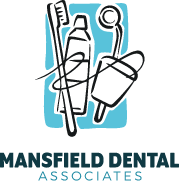Your Mansfield dentists know that choosing a tooth replacement system is a big decision that requires careful thought and research. Dental implants are unique from other tooth replacement options such as bridges or dentures because they alone replace the tooth root with a prosthetic root. The jawbone will grow around and unite with the surface of the implant root, creating a stable foundation for the crown, bridge, or dentures that it supports. At Mansfield Jones, Dr. Blair Jones and Dr. Seth Harris provide dental implants in a comfortable, welcoming environment. They now discuss some little-known facts about dental implants.
- The process entails two appointments over a 6 to 8 month period. In the first appointment, an experienced dental surgeon will place the titanium tooth root implant into the jawbone. It then takes the jawbone about 3 to 6 months to heal and fully unite with the implant root. In the final step of the process, Dr. Jones or Dr. Harris will place a crown on the implant.
- Replacing missing teeth with a stable, long-lasting option such as dental implants prevents many problems that can arise from missing teeth. For example, missing teeth can cause bone loss in the jaw, the appearance of shrunken cheeks, crooked teeth, and a misaligned bite.
- Smoking significantly increases the risk of a dental implant failing. However, implants have been shown to last decades when patients follow diligent oral hygiene habits and attend regular dental checkups.
- Dr. Jones and Dr. Harris offer MDI Denture Stabilization System, also known as mini implants, for patients who do not possess adequate bone tissue in the jaw to support a dental implant. Mini implants are smaller than traditional implants, and after the doctor easily inserts the mini implant into the bone, Dr. Jones or Dr. Harris can promptly fasten the dentures to the implants at the same appointment.
- Dental implants do not require special care. Simply care for them as you would care for your other teeth: twice daily brushing and once daily flossing. The doctors particularly urge you to take special care to floss very well around your implant at least once a day.
About Your Mansfield Dentists
If you would like to learn more about dental implants or how to replace missing teeth, call our office at 817-473-6227. Dr. Blair Jones and Dr. Seth Harris provide stellar general, restorative, and cosmetic dental services at their Mansfield office. They proudly treat patients from Mansfield, South Arlington, Kennedale, Southeast Ft. Worth, Alvarado, Midlothian and neighboring areas.





Recent Comments